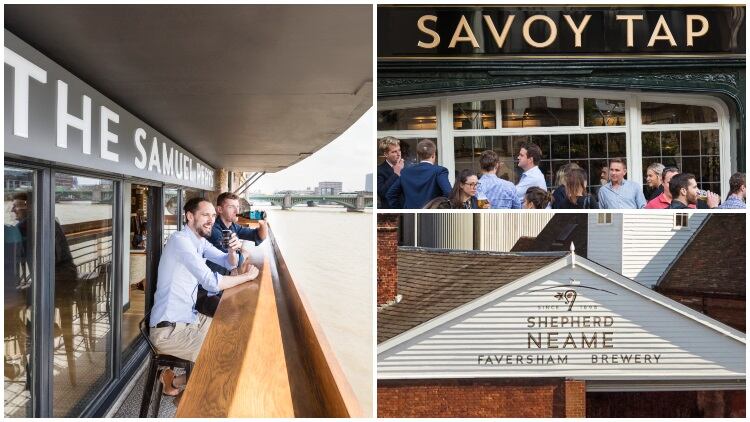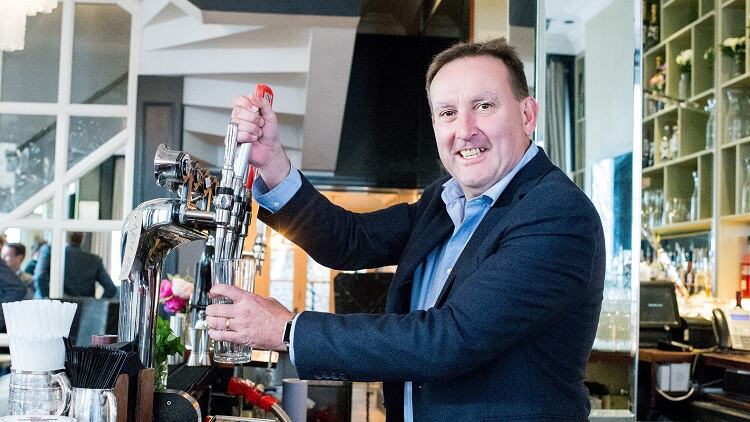Key questions for freehold buyers to ask
Chris Irving, a divisional director in Fleurets’ west and south Wales region, outlines the key questions that prospective buyers should ask of a freehold property.
“When considering purchasing a freehold pub, the key question – dependent on whether you have identified your chosen property – is, of course: can I afford it, or, what can I afford?” Irving says. “You may need to have a deposit of between 30% and 50% of the purchase price depending on whether you are purchasing a closed or trading pub.
“Additional, less obvious questions are: does it have the potential to provide a satisfactory level of income based on realistic projections? What is the condition? We advise that you undertake a structural survey if you are concerned.
“Is the pub in the right location for the nature of trade you require as well as being a suitable place to live? Of course, compromises may have to be made, but where are you willing to make these? If you already have a lease elsewhere: how long will it take to sell? And, if it takes longer than expected, can I run two pubs?
“Will I still have liabilities for my lease? It is usually better to get yourself in a strong proceed-able position so offers you make to purchase are not subject to a sale and arranging finance.”
The British are obsessed with owning property and seem to be happy to plunge themselves into debt to do so. Forecasts from the Office for Budgetary Responsibility estimate that household debt in 2019, mostly driven by mortgage debt, will be 182% of disposable income.
While residential property ownership is relentlessly encouraged and aspired to, despite the increasing difficulty in buying – the number of residential property transactions in the year ending December 2017 fell to a four-year low. But how should ownership be viewed in the pub trade?
Robin Mence, managing director of pub and licensed property sales specialists Sidney Phillips, says: “The tenanted and leased market has historically been a stepping stone to owning your own freehold and as soon as you can afford to make that jump, you’d be wise to do it.
“It reflects residential in that respect – home ownership is a prudent step and it’s no different in the commercial sector.”
This is something echoed by Paul Thompson, partner and property finance specialist at Acorn Finance. He argues that in the majority of cases, it is more beneficial to operate a freehold pub. “You’ll probably do less trade but you will be more profitable. Very much like renting or buying a house, you’ve got a freehold that you are buying over a 20-year mortgage so you’re building up your personal capital base.
“The two single biggest hurdles in obtaining a mortgage to purchase a freehold is, one, having the required deposit, and two, having the required experience.”
Demonstrating experience
“By the very nature that they’ve previously been a tenant or a lessee, they have the required experience to support the proposed application for funding,” according to Mence.
“A lot of inexperienced pur-chasers of freehold properties suffer the other way – they might have plenty of capital, but they don’t have experience and, therefore, they sometimes struggle to get funding.
“Sometimes people go into leases purely for experience even though they’re well capitalised and because, sometimes, at that stage they can’t afford to purchase a freehold.”
Thompson outlines the criteria lenders use to assess prospective freehold buyers’ applications for funding, based on experience.
“I want people to get their ducks in a row,” says Thompson. “There’s a mnemonic, CAMPARI, that illustrates whether a lender should give you money.”
Character – your track record, the more background you’ve got the better.
Ability – proving that you can run this business.
Means – your deposit, where is it coming from?
Purpose – pretty obvious when you’re buying a pub.
Amount – checking that the figures work and all the costs, such as stamp duty, are accounted for.
Repayment – how are lenders going to get their money back? Is the calculation based on existing trade or does it require the trade to develop?
“Interest – lenders use a risk-based interest rate. If you’re risky, you’ll pay a higher rate.
“It’s all about filling in as many of the blanks as possible for us to make it a no-brainer for the bank or a lender,” Thompson explains.
Availability of funding
Thompson highlights that prospective freehold owners have a wide range of potential funding sources at their disposal, from high-street banks to challenger banks and smaller lenders who operate within specialist fields.
He adds: “People still say, and you read on forums and things, that it’s really hard to get funding for the licensed trade. I’d argue that it isn’t, It’s not hard at all. The hard bit is finding a lender that fits your personal criteria and putting the right application in.”
Thompson argues that publicans seeking to fund a purchase delve into too narrow a pool of potential lenders.
“To put it in perspective, research a couple of years ago from the National Association of Commercial Finance Brokers showed that 60% of business owners go only to their own bank when they are looking for funding,” says Thompson. “Those people are not getting the best deal and they’re not getting the best advice because some of the high-street banks don’t do pubs.
“When people are talking to potential funders they need to know that the person they’re talking to understands the peculiarities of the pub trade.”
Previously, breweries have been a source of funding and expertise in this regard. However, Thompson argues that this is not necessarily the case for current buyers.
“Some of the breweries are still in the market, but generally not to the extent they were 20 years ago when they were a major source of funding. Breweries are more of a second thought now.
“As the consolidation of breweries has gone on, certainly when Heineken came into the market, their business model wasn’t to lend money because they didn’t do it in other markets.
“They want to use funding to protect supply lines and buying trade. Tying up large amounts on single units that aren’t trading brilliantly is a thing of the past now – they need to get a return. They’re much more big corporate animals than big UK breweries used to be.
“We’ve seen that with how the leasehold market has changed and that the breweries are massive global companies now. They get to being that big and wealthy by watching their pennies.”
Lessees buying their freehold
Thompson argues that opportunities for lessees to buy their freeholds are becoming more common. If the pub company or private landlord would consider selling, he claims that an operator can potentially stay in the same pub, buy the freehold, and not have to pour a massive amount of cash in.
“If you’ve got a business that’s reasonably successful, or could be very successful if you didn’t have the tie or pub company, then it’s well worth considering,” Thompson advises.
“Work out the value that the pub would hold if it was a freehold, because it will be on completion, so we can add back in the rent that they’re already paying and any discounts that they’re not getting.
“The business plan is a bit shorter because if it’s the pub that they’re in, they’re already operating it and know what they’re doing.”
Thompson argues that a number of operators don’t develop their leaseholds because they know that their rent will go up. He says: “There are a lot of people sitting on potential, waiting for that day when they go freehold and they can extend their restaurant or hours, or something similar.
“I had a pretty standard community pub in Leeds that wasn’t doing phenomenal trade, and profits went from around £25,000 under the tie to
£95,000 when free of tie. All right, you’ve got to pay a mortgage out of that, but you can afford to pay quite a lot of mortgage out of that.”
Building a capital base
Ultimately, most of the people in the trade want to be in their own freehold – that’s where most funding is focused, says Thompson
“That said, there are some tremendously successful lessees I’ve met people who’d never consider buying a freehold because they’re making so much money from leases because if they’re doing well they can get another lease, probably for nothing, do a refurb and do well in another pub.
“They build a lot of cash flow but they’re not building a capital base. They should be thinking about what happens at the end when they retire, because they don’t have a £1m freehold to sell to buy a house and retire on – they have a number of leases that, if the market is not great that, you’re not going to be able to shift.”
To find out more about pubs for sale, lease and tenancy visit our property site.




